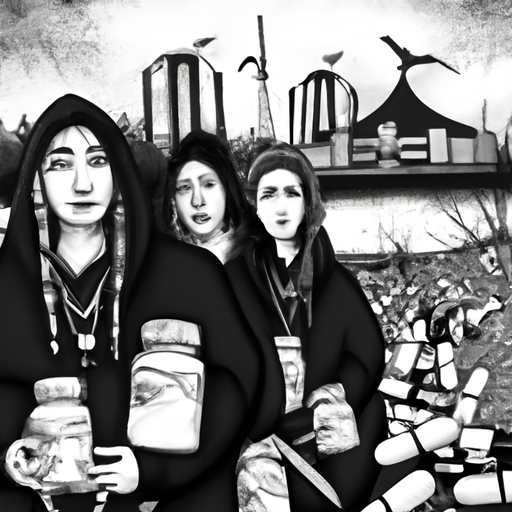Addressing the Opioid Crisis in Canada: A Stark Call to Action
Hi, folks! I’d like to draw your attention to a serious issue that’s been widely discussed but still hasn’t received the attention or compensation it deserves. It’s the growing opioid crisis in Canada and its profound impact on indigenous communities, particularly women.
Vulnerabilities Amidst the Opioid Crisis
Who is hit hardest by the opioid crisis? Sadly, it’s often those who are already vulnerable. No one knows this reality better than the indigenous communities of Canada, especially indigenous women. Unresolved historical trauma, socio-economic gaps, and racial disparity have made indigenous communities a ‘ground zero’ for the opioid crisis.
The Opioid Class Action
In Canada, a monumental opioid class action lawsuit against pharmaceutical companies manufacturing opioids has been launched. Accusations are that these companies were negligent and deceptive in their marketing, which has led to the current opioid crisis.
The Painful Effects of the Opioid Crisis
One cannot stress enough on the debilitating consequences of the opioid crisis. Here are some of the most heart-rending issues we face:
- An increased homelessness crisis: Opioid addiction and homelessness are interlinked. Addiction often leads to homelessness and vice versa.
- Crime rates escalating: Many individuals resort to crime to support their addiction, which contributes to increased crime rates.
- Deaths due to overdose: The alarming increase in overdose deaths has outstripped deaths from car accidents and homicides.
- Increased health-care costs: The public health care system is overwhelmed with the treatment costs for those battling opioid addiction.
Efforts To Combat the Opioid Crisis
The severity of the opioid crisis has sparked efforts to combat it:
- Homeless shelters: Shelters are increasing their support services to help those struggling with addiction.
- Expanded use of naloxone: This life-saving drug that can reverse an opioid overdose is being made more widely available.
- Support groups: There’s a growing emphasis on support groups that provide emotional support and counseling to those affected.
The Canadian government has taken note of the opioid crisis and is taking steps to address it. However, more needs to be done. For instance, legal action can be more aggressive, and laws can be amended to better protect those entrapped in the cycle of addiction. Also, significant investment in outreach programs can help provide the support that indigenous communities desperately need.
Summarizing the Battle Against the Opioid Crisis
The battle against Canada’s opioid crisis is ongoing and demands concerted effort from various stakeholders. Indigenous communities, already burdened by unresolved historical trauma and racial disparity, are being disproportionately affected. Negligent pharmaceutical companies have directly fueled the crisis, leading to an opioid class action. Meanwhile, the crisis continues to exacerbate homelessness and crime rates, whilst straining the healthcare system.
Efforts to tackle the crisis include pragmatic actions like making naloxone widely available, encouraging the establishment of more support groups, and increasing support services in homeless shelters. Such efforts are laudable, yet more needs to be done to stem the tide of this escalating crisis.
Let’s keep the conversation going and continue to raise awareness about the Canadian opioid crisis. Our collective effort can make a huge difference!
Stay informed and stay healthy!


